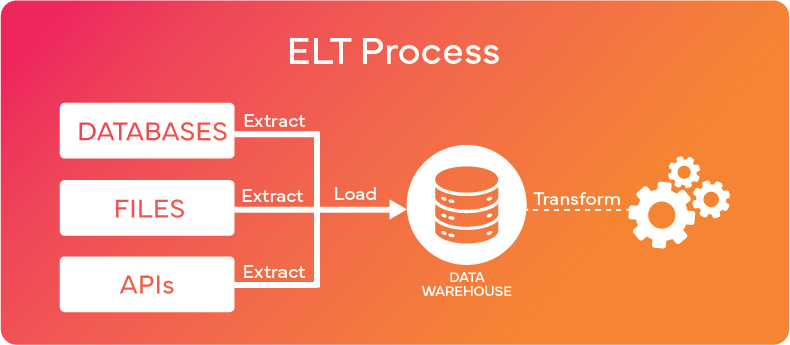Guide to Data Integration Consulting & Services
Learn the benefits of data integration consulting services, data integration tools, use cases, and more.

Overview
Imagine a reality where your business data is seamlessly integrated, providing you with a clear picture of your operations, customers, and the market. This can be achieved with the help of data integration consulting.
Zuar specializes in data consulting, so we have the expertise you need to craft a successful data integration strategy.
In this article, we will explore data integration consulting, its benefits, and how it can propel your business to new heights. Are you ready to unlock the full potential of your data?
Key Takeaways
- Data integration consulting provides businesses with improved data management and decision-making capabilities.
- Hiring a consultant offers specialized guidance, cost savings, cybersecurity protection, enhanced data quality, and increased efficiency.
- Common challenges such as data quality issues and security concerns can be addressed through effective solutions for successful implementation of the project.

Understanding Data Integration Consulting
Data integration consulting is a game changer for businesses aiming for digital transformation. It can heighten customer satisfaction, streamline operations, and provide a competitive edge in the market.
Combining data from multiple sources into a robust data warehouse empowers organizations to make informed decisions and optimize their processes through data transformation.
However, finding experienced data professionals can be a challenge, and they tend to be costly. That’s where third-party data integration service providers come in, offering expert guidance and support to help businesses overcome these challenges.
Role of Data Integration Consultants
Data integration consultants are the linchpins of successful data integration projects. They specialize in designing and implementing bespoke data integration solutions tailored to a company’s specific requirements.
By engaging a data integration consultant, organizations can streamline processes, reduce expenditures, and minimize risks while ensuring correct implementation of data integration solutions.
As a result, businesses can enjoy improved data management and better decision-making.
Benefits of Hiring a Data Integration Consultant
Hiring a data integration consultant offers several benefits, including:
- Specialized guidance and expertise
- A comprehensive roadmap for data integration
- Enhanced data quality
- Increased efficiency
- Cost savings
- Cybersecurity protection
Moreover, they can help with the following:
- Designing and implementing efficient data pipelines to ensure seamless data flow across the organization
- Unlocking the true potential of your data
- Driving your business to new heights

Key Data Integration Services Offered by Consultants
Data engineering services, including integration services, play a crucial role in helping businesses to achieve operational efficiency and competitive edge by reducing costs, improving data accessibility, and facilitating real-time data integration through data federation services.
Data integration consultants offer a wide array of services to help businesses consolidate, replicate, virtualize and federate their data. These services form the pillars of a successful data integration project and cater to the diverse needs of organizations.
Whether you need to break down data silos, create a single source of truth, or simply ensure data consistency, data integration consultants have the expertise and tools to help you achieve your goals.
Data Consolidation Services
Data consolidation services are the key to:
- Eliminating data silos
- Reducing infrastructure costs
- Enhancing data accuracy
- Improving accessibility for analysis and decision-making
This is achieved by merging data from multiple sources into a centralized location, allowing for efficient transfer data processes.
Data Replication Services
For businesses with limited data sources, data replication services can be a lifesaver. These services store and maintain multiple copies of data in various locations.
Data replication services help guarantee data availability, enhance data security, and minimize the risk of data loss. Creating duplicate copies of data can enable businesses to maintain continuous accessibility, security, and currency of their data.
Data Virtualization Services
Data virtualization services are like a magic wand that provides a unified view of data without physically moving it.
These services create a virtual layer that consolidates data from different systems and formats in real time, allowing users to query and analyze data seamlessly.
By doing so, they essentially create a data lake, making it easier for businesses to access and utilize their information.
Data virtualization services enable organizations to make the most of their data resources by improving accessibility, reducing duplication, and streamlining integration processes.
Data Federation Services
Data federation services are the glue that holds your data together, creating a virtual database that fetches data in real time from multiple sources. This enables organizations to quickly access data from various systems and databases, providing a unified view of their data.

Selecting the Right Data Integration Tools
Choosing the right data integration tools depends on factors such as data volume, complexity and desired outcomes. With countless options available, it can be overwhelming to navigate the world of data integration tools.
However, by helping you understand your own organization’s needs, goals, and resources, data integration consultants can help you select the best fit for your data integration project.
Factors to Consider
When selecting data integration tools, it’s essential to consider the following factors:
- Data connector quality
- Type, volume and frequency of data
- Total cost of ownership
- Data source coverage and destination coverage
- Security
Examining these factors can help ensure alignment of the chosen tools with your organization’s needs and objectives, thereby setting your data integration project on the path to success within the target system.

Implementing Data Integration Solutions
So, you’ve chosen the perfect data integration tools for your business. Now what? Implementing data integration solutions is not a walk in the park, but with the right approach, it can be a smooth and rewarding journey.
The process involves assessing your data landscape, designing a data integration strategy, and executing the plan to ensure seamless data flow and improved decision-making through data engineering.

Assessing Your Data Landscape
The first step in implementing data integration solutions is to assess your data landscape. This involves understanding the current state of your data sources, systems and processes.
Gaining a comprehensive understanding of the data landscape can help identify opportunities for improvement and facilitate the design of an effective data integration strategy that meets your organization’s needs.
Once you have a clear understanding of your data landscape, you can begin to develop a data integration strategy.
Designing a Data Integration Strategy
Designing a data integration strategy is like crafting a roadmap that guides you through the data integration journey. It involves defining clear goals, selecting the appropriate tools, and planning the integration process.
Considering various factors such as the following can lead to the creation of a robust strategy, setting your data integration project up for success.:
- Data sources
- Technical requirements
- Business requirements
- Security and privacy requirements
- Architecture
Watch this video to learn the five steps to creating a scalable data strategy:
Executing the Data Integration Plan
Once you have a solid data integration strategy in place, it’s time to execute the plan. This involves:
- Implementing the chosen data integration tools
- Testing their functionality
- Training personnel
- Monitoring the progress of the project
Closely following the plan and making necessary adjustments will ensure a successful data integration project that delivers valuable insights and drives your business forward.

Data Integration Consulting Industry Use Cases
Use cases from various industries showcase the power of data integration consulting projects. These highlight how organizations can harness the expertise of data integration consultants and the right tools to transform their data landscape, gain valuable insights, and achieve remarkable results.
Retail Companies
Retail companies can utilize a data integration consultant to help achieve the following:
- Integrate customer data from multiple sources into a single, unified system
- Gain a better understanding of their customers
- Offer more personalized services
- Improve customer satisfaction
- Increase sales
This use case demonstrates the power of data integration consulting in unlocking the potential of data to drive revenue.
Manufacturing Firms
In the manufacturing industry, firms can consolidate their production data from various sources into a single, unified system through a successful data integration consulting project.
This can enable companies to more effectively monitor their computing systems, optimize their operations, streamline processes, and reduce costs.
This use case highlights the transformative impact of data integration consulting on operational efficiency and cost savings.

Overcoming Common Data Integration Challenges
Data integration projects can be fraught with challenges, such as delays with implementation, security concerns, resource limitations, data quality problems, and difficulty with actionability.
However, by taking a proactive approach, businesses can overcome these hurdles and reap the benefits of successful data integration projects.
Data Quality Issues
Data quality issues, such as incorrect or incomplete data, data duplication, and data inconsistency, can be a major roadblock for data integration projects.
To resolve these issues, organizations can employ data audits, cleansing, validation and standardization. Ensuring data accuracy and consistency enables businesses to make informed decisions and maximize the potential of their data.
Data Security Concerns
Data security is a paramount concern for businesses, especially in the context of data integration projects.
Unauthorized access to data, data breaches, and data loss can have serious repercussions. To address these concerns, organizations can implement encryption, access controls, and regular audits.
Taking proactive measures to protect data allows businesses to safeguard their valuable information and maintain trust with clients and stakeholders.
Scalability and Performance
Scalability and performance are critical factors for the success of data integration projects.
Slow data processing, data overload, and data latency can hinder the efficiency of data integration efforts. To maintain scalability and performance, organizations should choose the right tools, optimize processes, and monitor system performance.
Ensuring that data integration solutions are scalable and performant helps businesses stay agile and responsive in the face of ever-changing market conditions.

Data Integration Consulting Next Steps
Ready to streamline your data processes and unlock the full potential of your organization's data? Whether you're looking to improve data quality, optimize workflows, or harness the power of data analytics, Zuar, a leader in data integration and BI consulting, can be a critical resource for your organization. Check out Zuar's data services at this link.
Additionally, with Zuar Portal and Zuar Runner, you can automate the flow of data from hundreds of potential sources into a single destination for analytics and provide customized, secure, global analytics access to any audience.
Schedule a data strategy assessment to take the first step towards transforming your data into a strategic asset with Zuar:



